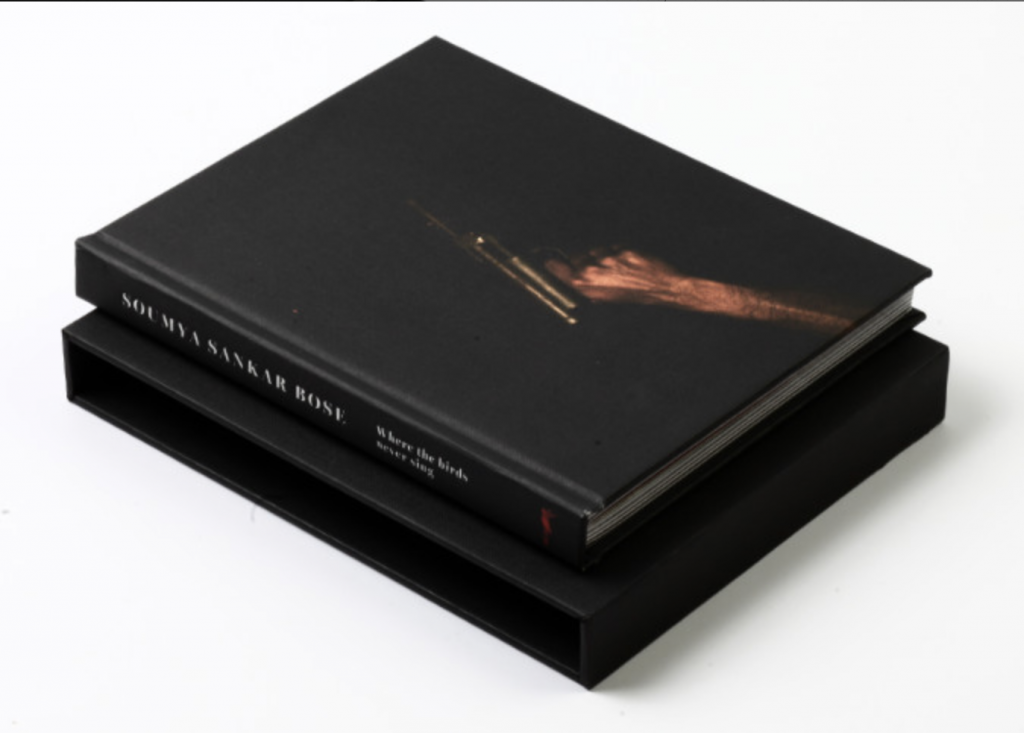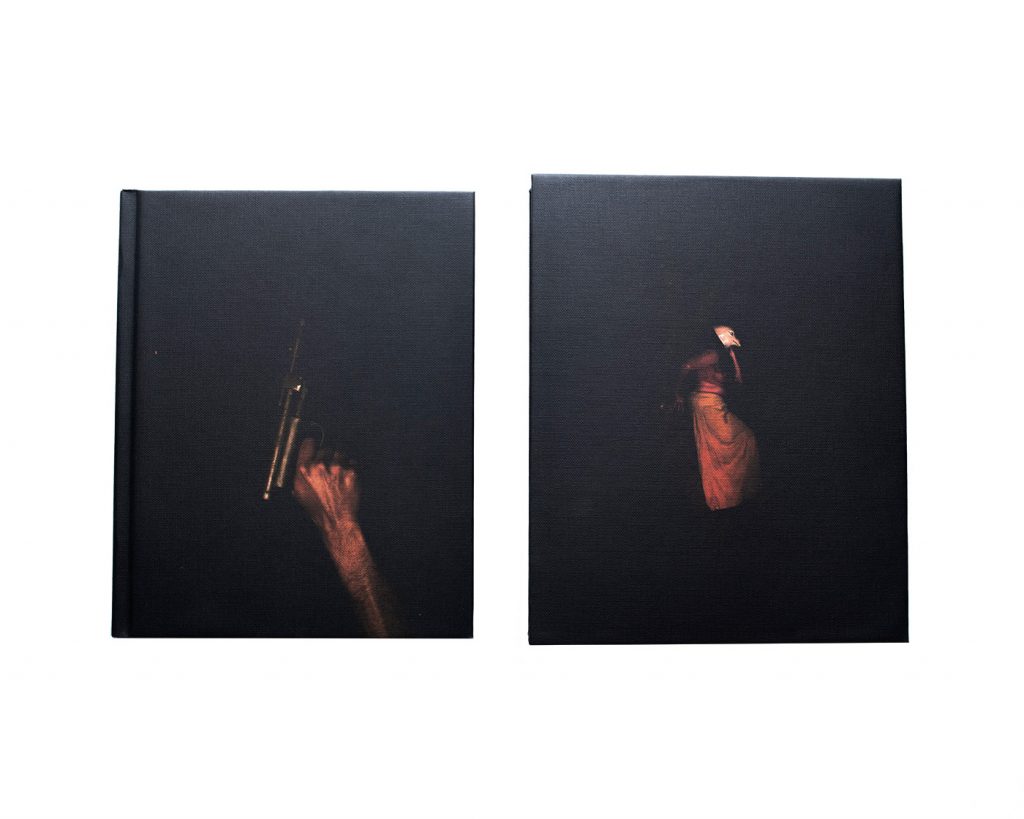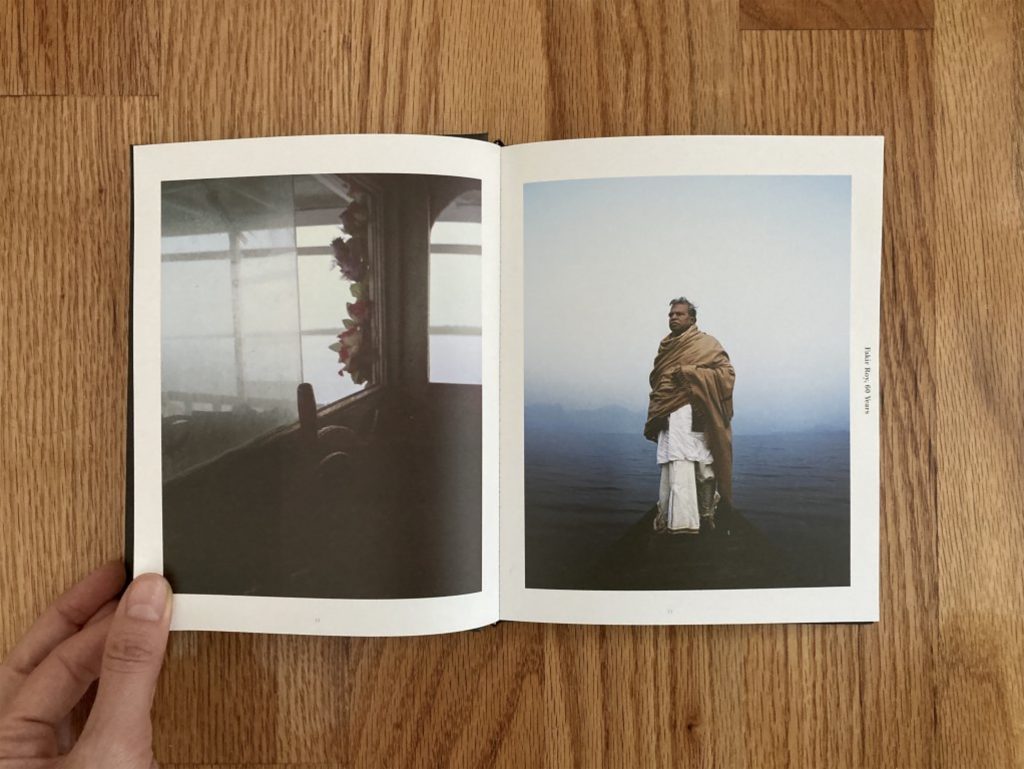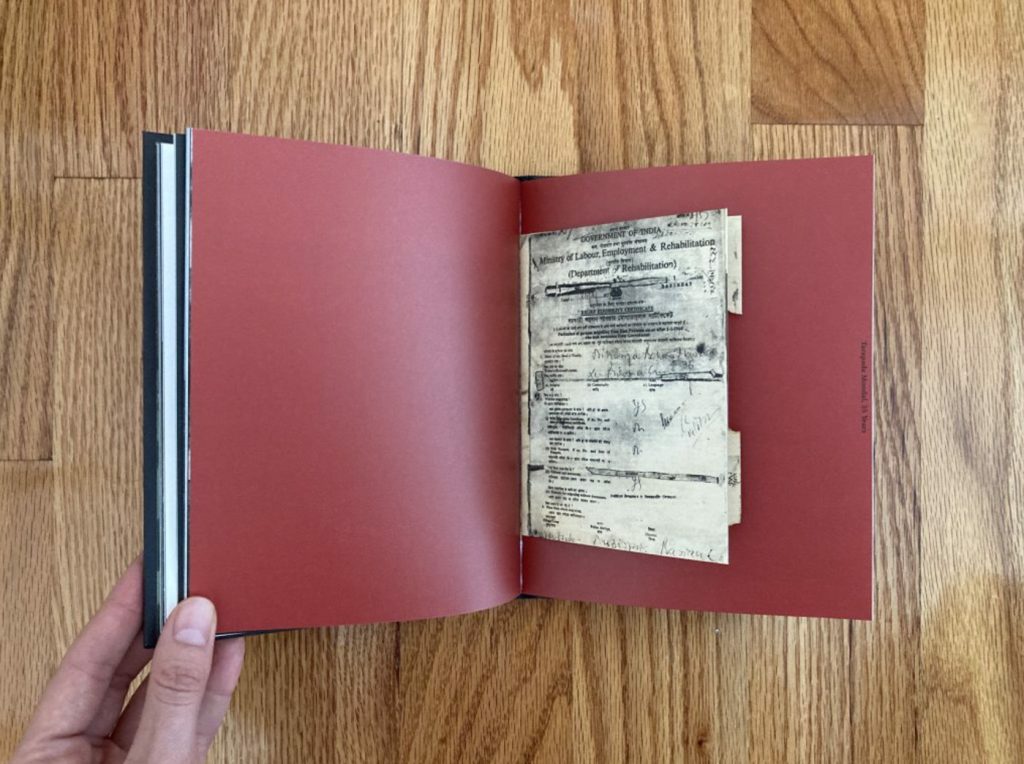Where the Birds Never Sing (2017- 2020) is a book on the Marichjhapi massacre, the forcible eviction in 1979 of Bengali lower caste refugees from Marichjhapi Island in Sundarban, West Bengal, India and the subsequent death of thousands by police gunfire, starvation, and disease.
Bose, over the last few years(2017-2020), has been researching and re-enacting memories of the survivors in specific locations, as there is almost no written record of the incident. Through the intricate weaving of facts and fiction of existing oral histories of the real survivors, he brings to light several perspectives of the same narrative, forming a cryptic framework of this problematic history that is facing slow erasure from collective memory.
Text : Aditya Kumar | Soumya Sankar Bose | Annu Jalais
Design : Barnali Bose
Pages : 140 pages
ISBN : 978-1-5136-6415-6
Price : 3000 INR(shipping included) in India, 70 USD (shipping included) outside India.



